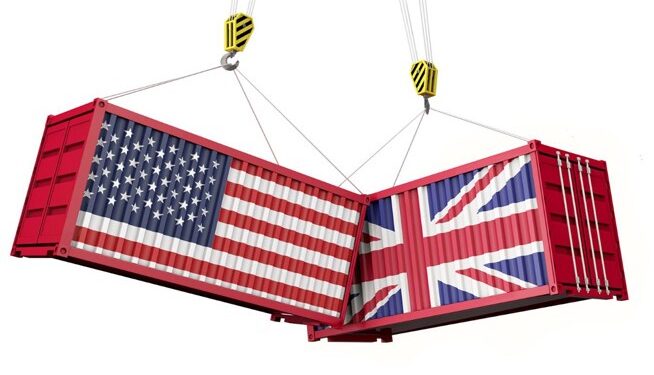The British economy shrank by 0.3% in the second quarter of 2025, according to official data released on Wednesday, raising fears of a possible recession as global trade tensions continue to mount. The contraction was largely attributed to a sharp fall in exports, with analysts pointing squarely at the escalating trade dispute between the United States and its key partners, including the United Kingdom.
The Office for National Statistics reported that goods exports fell by 5.7% during the three-month period, driven by steep declines in machinery, automotive parts, and chemicals. These are all sectors heavily exposed to the new tariffs imposed under President Donald Trump’s revived “America First” trade policy. The renewed tariffs, first announced in March and intensified in May, have hit UK exporters with duties ranging from 15% to 35%, cutting off vital access to the US market.
Imports also declined, but not enough to offset the export collapse. Consumer spending remained flat, while business investment weakened for the fourth consecutive quarter, reflecting widespread uncertainty over global economic conditions and the UK’s long-term trade outlook. Services, the largest sector of the British economy, grew modestly but failed to counterbalance the industrial and manufacturing declines.
Chancellor Rachel Reeves called the figures “deeply concerning,” blaming what she described as “reckless trade aggression from Washington.” She said the government was working with allies in Europe and the Commonwealth to seek alternative markets and support domestic producers, but warned that “no economy can thrive in a climate of economic nationalism.”
Prime Minister Keir Starmer is expected to address the issue directly during next week’s emergency G7 summit in Berlin, where trade and global stability will be high on the agenda. Downing Street sources said the UK would press for a coordinated response to US protectionism, potentially including reciprocal tariffs or WTO action.
Economists are now warning of a technical recession if the economy contracts again in the third quarter. The Bank of England, which held interest rates steady at 4.25% last month, may be forced to reconsider its stance if growth does not recover by late summer. Inflation remains subdued at 2.1%, giving the central bank some room to manoeuvre.
Meanwhile, business leaders are urging both governments to return to the negotiating table. “British exporters are paying the price for a political dispute not of their making,” said Paul Drexler, president of the Confederation of British Industry. “We need open markets, not tariff walls.”
The pound fell 0.6% against the dollar in early trading following the GDP release, while the FTSE 100 dipped 0.4% amid renewed investor unease. Market watchers say any sign of further escalation in the trade standoff could deepen the economic damage and undermine fragile confidence heading into the autumn.
While the contraction is not yet cause for panic, it signals the growing cost of geopolitical conflict in a world where economic interdependence is being steadily unravelled. For now, Britain’s path to recovery may lie not in Westminster, but in Washington.
newshub finance



Recent Comments